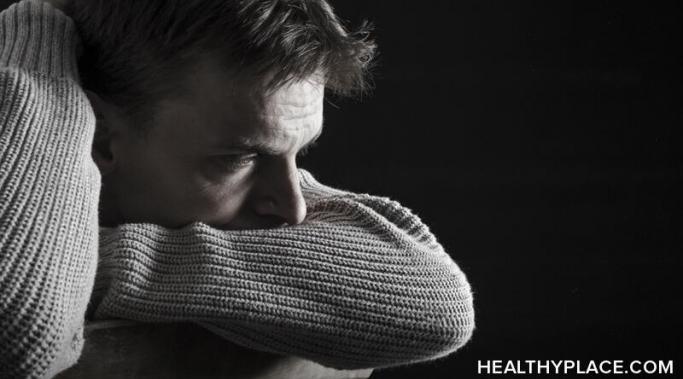Blogs
I first heard the term "perseveration" in a lecture by psychologist Russell Barkley about attention-deficit/hyperactivity disorder (ADHD) and hyperfocus.1 People with ADHD struggle with boredom, but they can often focus on things they enjoy. In fact, they can focus too much, obsessing over one thing and ignoring other subjects and tasks. Barkley suggests that ADHDers do not hyperfocus, as people with autism do, but perseverate. He defines perseveration as the inability to stop doing an activity at an appropriate time.
Addiction to benzodiazepines (benzos) can be very dangerous for users. Benzodiazepine medications are typically prescribed for people who suffer from anxiety or other mental illness. The drugs are fast acting and they begin to work as soon as they hit the user’s body. That means that rather than waiting for days or weeks for a medication to build up to therapeutic levels, benzodiazepines are able to provide users with almost immediate relief. This instant effect can increase the risk of benzodiazepine addiction Prescribers like to use this type of medication because of its instant effect and the fact that it allows patients to begin therapy and other treatments more quickly than medications like antidepressants (which have to build up). Commonly used benzodiazepines include clonazepam (Klonopin), alprazolam (Xanax), diazepam (Valium), and lorazepam (Ativan).
Age regression occurs in dissociative identity disorder (DID) particularly, but also in other mental illnesses such as posttraumatic stress disorder (PTSD) and major depressive disorder. While many people with DID have young or child alters, called littles, age regression is something different. So what is age regression, and how do you cope with it?
Anxiety jabbers incessantly, creating maddening and anxious running commentary in our heads. To make it worse, anxiety acts as a translator and interprets what we hear and see, twisting things into its own warped ideas. With anxiety translating messages we receive, we often misinterpret the world around us. Anxiety's untrustworthy thoughts lead to self-doubt, faulty reasoning, negative beliefs, overthinking, and overanalyzing. Becoming aware of how the anxious voice in your head translates our incoming messages is an important step in correcting the translations and quieting the anxious running commentary that interrupts your inner speech.
You can sometimes predict that a mental health setback will happen, but still, when it happens, a mental health setback seems to come out of nowhere. I got a call from school staff this morning saying that my son was disrupting the class. He had been out of his seat, kicking chairs, and refusing to do work. In the background of the call, I could hear his teacher attempting multiplication lessons while the paraprofessional explained quietly that my son was now on the floor, unmovable and unresponsive to everybody. He was no longer allowed on Friday's field trip. The staff put the phone to my son's ear so I could try to talk him, but he hung up on me instead. After months of doing amazingly well at school and home, this was definitely a mental health setback.
We need eating disorder recovery tips for the holidays because, despite its festive spirit and upbeat mood, this can be a stressful time of year. The tension becomes even more palpable for those in recovery from an eating disorder. Between complex family dynamics, hectic scheduling demands and increased financial commitments, this season often feels more nerve-racking than relaxing. But with the added pressure of an eating disorder, one facet tends to cause more anxiety than all the others combined—food. Since the holidays center around cooking, baking and sharing meals, this can present a serious obstacle for those healing their relationship with food. Therefore, it's crucial to prioritize eating disorder recovery tips for the holidays over these next two months.
Is anxiety affecting your concentration? If you suffer from anxiety, you likely know that a common anxiety symptom is difficulty in concentration. Anxiety can send us into a true tailspin of disruptive and irrational thinking that can affect our ability to focus.
There are several approaches to healing from posttraumatic stress disorder (PTSD), and they may include finding comfort and support from faith communities. Yet, some doctrines do not foster self-care and recovery. If you have a faith community or consider yourself a member of an organized religion, you may develop beliefs that can stand in the way of your healing from PTSD. Here are some observations on faith systems and their impact on PTSD recovery.
Being a college student with mental illness can be challenging, but for many, it is well worth it. A few months ago, I wrote an article on the importance of persistence as a college student. Persistence in college helps greatly, but it takes more than that to succeed. There are many resources available to college students with mental illness and it’s also important to build a network of support, including mental health professionals, peers, mentors, family and friends.
There are many things you have to cope with when you have bipolar disorder and one of those things may be intrusive thoughts. Intrusive thoughts are thoughts that are beyond your control and can become obsessions. But they are thoughts you do not want and, certainly, obsessions you don’t want to have. Here are some ways to cope with intrusive thoughts in bipolar disorder.









